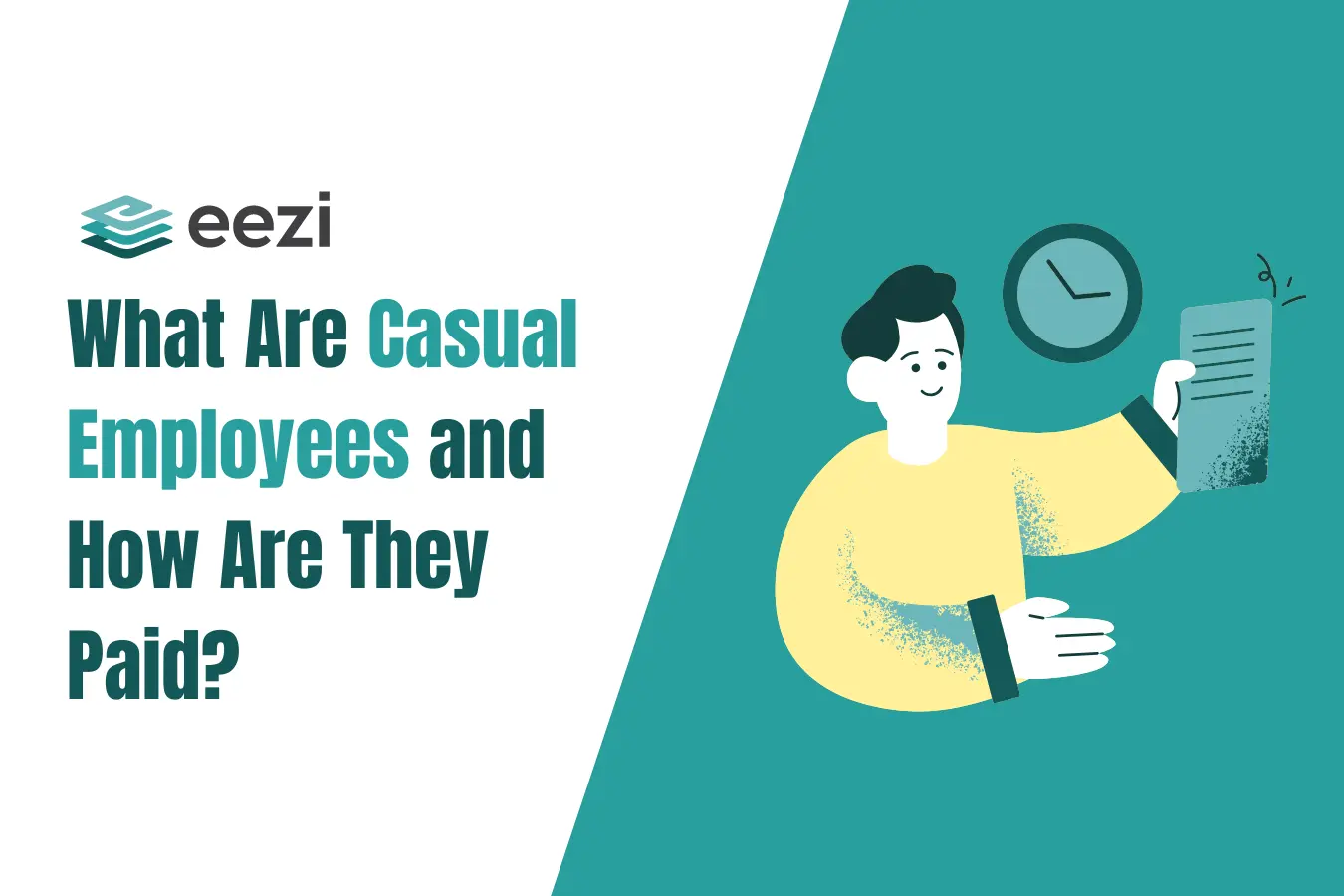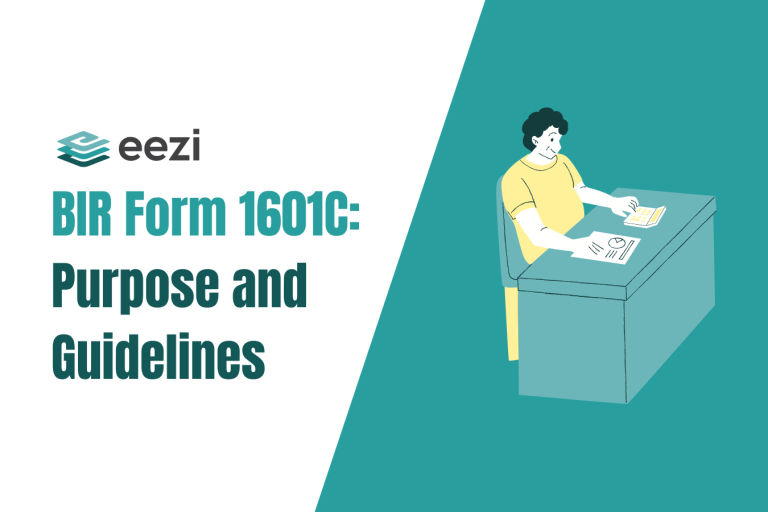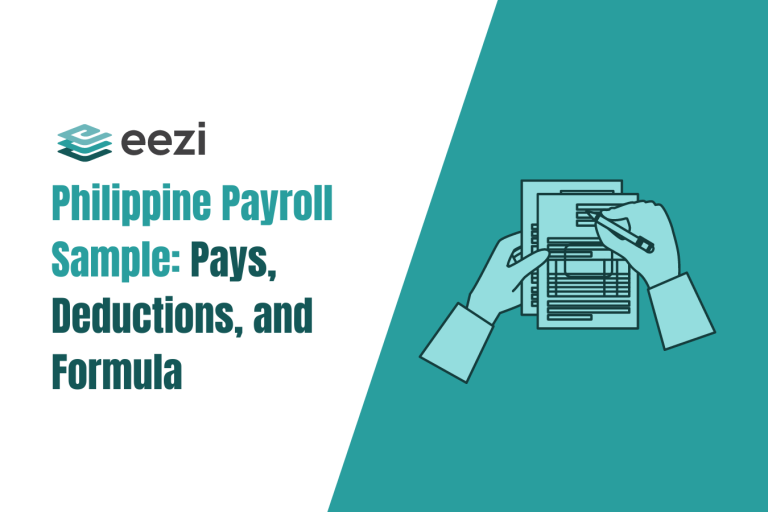What are casual employees, and what entitlements do they get?

In the Philippines, a casual employee is someone hired for temporary and non-regular work. Companies that hire casual employees usually do so to fill workforce gaps during periods of high economic growth. In casual employment situations, however, a worker’s employment may be terminated at any time.
Being a casual employee means having different work agreements from full-time, part-time, and regular employees. Moreover, casual workers are hired daily, hourly, or weekly without commitment.
In this case, the employment agreement must specifically outline the casual working arrangement. Besides these, casual employees have the same rights and obligations as full-time employees. However, their schedule during yearly holidays, sick days, and bereavement leave may differ.
Below, we will define casual employee meaning, rights, and salary.
What is a casual employee in the Philippines?
Under the Labor Code, casual employees are also known as contractual employees. This sets them apart from regular, seasonal, or project employees. They only work occasionally and irregularly, as opposed to regular employees’ predictable and consistent work.
A casual employment may only last for a year at the most. The employee risks being categorized as a regular employee if the employment period exceeds this limitation.
In general, employees are deemed casual when they fit the following criteria:
- Temporary Nature: Employees are hired for tasks or projects without a long-term commitment.
- Non-Regular Status: They lack job security compared to regular employees and aren’t part of the permanent workforce.
- Flexible Work Arrangements: They often work irregular hours and schedules.
- Limited Benefits: Casual employees may not receive the same benefits as regular employees, such as health insurance or paid leave.
- Lower Job Security: Termination is easier for casual employees, and they may not have the same legal protections.
What are the types of casual employment?
Here are the two types of casual employment:
Regular Casual Employment
When a company notices a position is needed but not for the long term, they may require casual employees. With regular casual employment, workers have predictable and organized work hours. Deploying employees from Monday to Friday, for example, allows them to anticipate their workload.
Still, these responsibilities often have a predetermined duration. After their completion, the obligations to the employer are also fulfilled.
Irregular Casual Employment
Irregular, casual employment is also known as unstable or intermittent employment. This is a work arrangement where individuals are hired based on the specific needs of a company or employer.
For example, a business might ask someone to fill in for a store clerk over the holiday. Once the regular employee returns, the irregular one will automatically be off duty.
What is the pay for casual employees?
A casual employee is compensated hourly or occasionally by milestone. The work determines how much is paid. In addition, casual employees may be paid more per hour than full-time or part-time employees in the same position. Although you might occasionally sign a contract, most casual employment isn’t bound by it.

Can a casual employee be a regular employee?
Yes, in the Philippines, it is possible for a casual employee to become a regular employee under certain circumstances. The transition from casual to regular employment status is typically subject to labor laws and company policies. Here’s an explanation:
In the Philippines, a casual employee can become a regular employee through the following ways:
- Regularization Policies: Many companies have policies that specify the conditions under which a casual employee can be considered for regularization. These policies often require the employee to have worked for a certain period, demonstrated satisfactory performance, and met other criteria.
- Labor Laws: Philippine labor laws may also provide guidelines for the regularization of casual employees. For example, after a certain duration of continuous employment (often referred to as the probationary period), an employee may become eligible for regular employment status.
- Collective Bargaining Agreements (CBAs): In unionized workplaces, the terms of employment, including the process for transitioning from casual to regular status, may be negotiated and outlined in the CBA.
- Employer Discretion: In some cases, the employer may have the discretion to offer regular employment to a casual worker if they believe it’s in the best interest of the company.
Ultimately, the specific conditions and requirements for regularization can vary between employers and industries. Additionally, casual employees should be aware of their rights and consult their employment contract, company policies, and applicable labor laws to understand the path to regular employment status within their organization.
Can a casual employee receive 13th-month pay?
Yes, casual employees in the Philippines are entitled to receive the 13th month’s pay, as mandated by law.
Key points to note:
- Mandatory Benefit: The 13th-month pay is a mandatory benefit for all employees in the Philippines, including casual employees.
- Calculation: It is equivalent to one-twelfth of the employee’s total basic annual income.
- Payment Deadline: The Department of Labor and Employment (DOLE) requires employers to pay the 13th-month compensation on or before December 24th each year.
- Universal Eligibility: All rank-and-file workers, regardless of their position or length of service, are eligible to receive the 13th-month pay.
- Legal Obligation: Employers are legally required to comply with this benefit, and failure to do so can result in penalties.
However, the law governing the 13-month pay period has various exemptions. The following workers do not qualify for a 13th month’s pay:
- Individuals doing project-based work (with a set period).
- Individuals who are employed on commission.
- Individuals who have been working for less than a month.
- Workers in managerial positions
- Contractors (unless the contract says otherwise)

What is an example of casual employment?
Casual employees are temporary or part-time workers who are not regular staff members. They just fulfill a temporary or urgent demand for a company. Moreover, these workers are still entitled to certain legal rights, including the right to compensation. However, they are less secure than regular part-time or full-time employees.
Some examples of casual employees are as follows:
- Seasonal workers who supervise the holiday rush at retail establishments
- Day laborers recruited to work on farms
- Legal clerks engaged in supporting a particular case are all examples of casual employees
These workers might put in a few hours, days, or weeks. At the beginning of their employment, they are informed that their status is only temporary.
In some instances, a casual labor job may result in a proposal for more formal employment. For instance, a law clerk who excels might be allowed to work for the firm as a regular employee. This type of employment is at-will, meaning either party may end it at any time without giving a reason.
Take Away
In the Philippines, casual employees are a vital part of the workforce. Despite not having the same benefits as regular workers, they nonetheless have stable employment. They are paid well, including overtime for any work done above the standard eight hours per day and at least the minimum salary.
Both employers and employees must understand the rights and responsibilities of casual employment. Both sides can ensure that casual workers receive treatment fairly and have a good working relationship with their supervisors by being aware of these rules.
Streamline and automate your casual employees’ payroll – fast, affordable, and easy!
With eezi, you can finally end the tedious manual pay computations and drastically cut down on mistakes and imbalances in payment computations.
Discover how our system works in payroll management.



